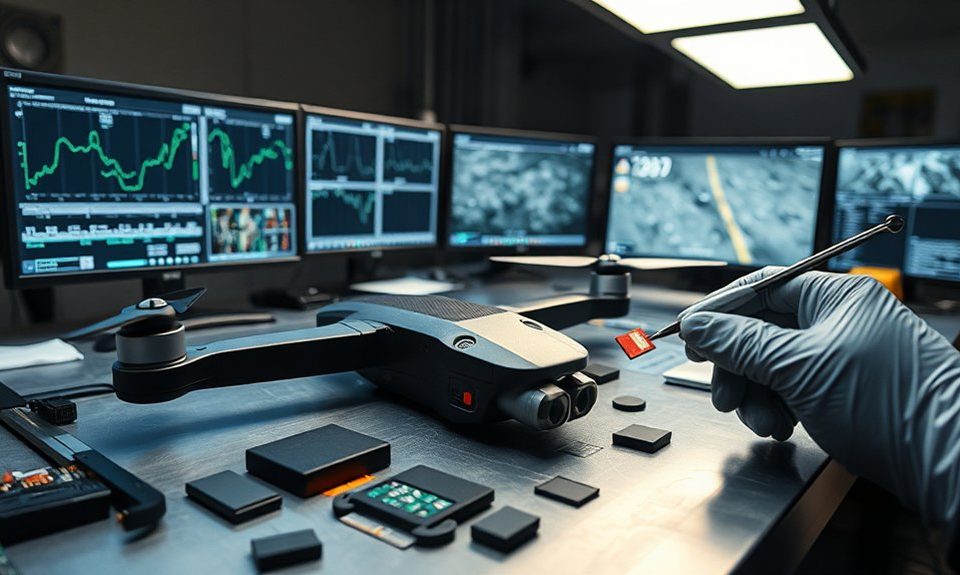Service of process is a critical requirement in civil litigation. It establishes legal jurisdiction and guarantees that defendants receive notification of claims against them. Adhering to proper service protocols promotes fairness and efficiency in the judicial process. Without effective service, cases may suffer delays or dismissals, potentially harming a party’s ability to argue their case. Understanding the nuances of service of process can greatly impact legal outcomes and strategy. Further details on this topic will be beneficial.
Key Takeaways
- Yes, service of process is essential to establish court jurisdiction over a defendant in civil litigation.
- It ensures defendants are aware of the claims against them, facilitating fair legal proceedings.
- Timely service is crucial, as delays can jeopardize a party’s ability to present their case effectively.
- Various methods exist for service, including personal delivery, certified mail, and alternative methods when personal service is impractical.
- Adherence to service requirements upholds the integrity of the judicial process and protects the rights of all parties involved.
Understanding Service of Process

Understanding service of process is crucial to the framework of civil litigation, as it establishes the legal basis for a court’s jurisdiction over a defendant. Proper service guarantees that defendants are aware of claims against them, fostering fairness and transparency in the legal system. The implications of service extend beyond mere notification; they affect process efficiency, as improper service can lead to delays, increased costs, and potential dismissals. Furthermore, the methods and timeliness of service can markedly influence the outcome of a case. By adhering to established protocols, litigants can mitigate risks and enhance the likelihood of a swift resolution. Additionally, the importance of proper service cannot be overstated, as it is crucial to legal proceedings. Ultimately, a thorough understanding of service of process is critical for all parties engaged in civil litigation, guaranteeing that justice is served effectively.
The Legal Requirements for Service of Process
The legal requirements for service of process play an essential role in ensuring that defendants are properly notified of legal actions against them. Various methods of service, including personal delivery and certified mail, must adhere to established legal standards to be deemed valid. Understanding these requirements is vital for upholding the integrity of the judicial process and protecting the rights of all parties involved. Additionally, the use of experienced servers can greatly enhance the accuracy and timeliness of the service process.
Importance of Proper Service
Although often overlooked, the importance of proper service of process in civil litigation cannot be understated, as it establishes the foundation for a court’s jurisdiction over a defendant. Failing to adhere to legal requirements can result in significant legal implications, including the dismissal of a case. Additionally, improper service may lead to service challenges, complicating the litigation process.
- Guarantees the defendant is informed of the legal action
- Establishes the court’s authority to adjudicate the case
- Protects the rights of all parties involved
Understanding these aspects underscores the necessity of meticulous service procedures, as they uphold the integrity of the judicial system and facilitate fair access to justice for all parties concerned.
Methods of Service Available
While various methods of service of process exist, each method must comply with specific legal requirements to guarantee validity. Traditional methods, such as personal service and service by mail, continue to hold significance, but they also present service challenges, particularly in confirming the defendant’s receipt of documents. Innovations in service methods, like electronic service and social media notifications, have emerged to address these challenges, offering greater flexibility and efficiency. However, these modern approaches must still adhere to jurisdictional rules to avoid complications. Ultimately, understanding the range of available methods and their legal requirements is essential for litigants to navigate the complexities of civil litigation effectively and secure proper service of process.
Consequences of Failing to Serve Process
Failing to serve process can greatly undermine a party’s ability to pursue legal remedies in civil litigation. When a party neglects this critical step, several adverse consequences may arise, severely impacting their case.
- Default Judgments: The court may issue a default judgment against the non-compliant party, resulting in an automatic loss.
- Dismissal Motions: Opposing parties can file dismissal motions, potentially ending the litigation before it even begins.
- Delayed Justice: Failure to serve can prolong the dispute, creating additional frustration and costs for all involved.
These outcomes highlight the importance of adhering to proper service protocols, as neglecting them can irreparably damage a party’s case and limit their legal options. Additionally, effective service of process contributes to the overall efficiency of legal proceedings, ensuring all parties are properly notified and able to participate in the case.
Methods of Serving Process
The methods of serving process are vital in ensuring that defendants receive proper notification of legal actions. Primarily, personal service techniques involve directly delivering documents to the individual, while alternative service methods provide options when personal service is impractical. Understanding the advantages and limitations of each method is essential for effective legal proceedings. Additionally, attorneys often collaborate with private investigators to enhance the effectiveness of service of process.
Personal Service Techniques
Personal service techniques are essential for ensuring that defendants receive legal notice of pending civil litigation. These methods, aimed at delivering documents directly to the individual, uphold the principles of fairness and due process. Effective personal service can enhance the likelihood of compliance and facilitate the judicial process.
- Direct Delivery: Handing documents to the defendant in person, ensuring they acknowledge receipt.
- Substituted Service: Leaving documents with a responsible adult at the defendant’s residence or workplace when they are unavailable.
- Service by Mail: Sending documents via certified mail, requiring a signature to confirm receipt.
Each of these service techniques plays an important role in the legal framework, emphasizing the importance of transparency and accountability in civil litigation.
Alternative Service Methods
In situations where traditional personal service techniques prove ineffective, alternative service methods may be employed to guarantee defendants are notified of civil litigation. One common approach is substituted service, where process is delivered to an individual other than the defendant, such as a family member or an authorized agent, ensuring that the defendant receives notice. Additionally, electronic notifications have gained traction, particularly in an increasingly digital world. Courts may permit service via email or social media platforms, provided there is evidence that these methods are likely to reach the defendant. These alternatives not only accommodate the challenges of locating defendants but also uphold the fundamental principle of ensuring fair notification in civil proceedings, thereby maintaining the integrity of the judicial process.
Exceptions to Service of Process Requirements
While service of process is a fundamental requirement in civil litigation, certain exceptions can alter the standard procedures. These exceptions recognize specific circumstances under which the conventional rules may not apply, guaranteeing that justice is accessible even in unusual situations.
- Emergency exemptions: Instances where immediate action is necessary to prevent harm or injustice, allowing for expedited processes.
- Waiver scenarios: Cases where a defendant voluntarily relinquishes their right to formal service, often by acknowledging receipt of the complaint.
- Involuntary absence: Situations where a defendant’s location is unknown, necessitating alternative methods to confirm they are informed. Additionally, understanding these exceptions can help litigants navigate complex legal landscapes more effectively, fostering a sense of fairness and adaptability in civil processes, similar to how competent investigators can save time and reduce costs in criminal defense cases.
Importance of Timely Service in Civil Litigation

Why is timely service vital in civil litigation? Timely notifications guarantee that all parties are informed and can adequately prepare for the legal proceedings. This prompt communication fosters fairness, allowing defendants to respond within the established legal deadlines. Failure to serve documents promptly can lead to significant delays, potentially jeopardizing a party’s ability to present their case. Furthermore, courts often impose strict timelines for various stages of litigation, making adherence to these deadlines essential to avoid dismissals or unfavorable judgments. Timely service not only upholds the integrity of the judicial process but also enhances trust among involved parties, guaranteeing that everyone has an equitable opportunity to participate in the legal dialogue. Consequently, timely service is indispensable for effective civil litigation. Additionally, hiring a professional investigator can ensure the admissible and authoritative evidence is gathered efficiently, further supporting the case.
Frequently Asked Questions
Can I Serve Process Myself or Must I Hire a Professional?
The question of serving process self-service versus hiring a professional service often hinges on legal requirements, complexity, and personal capability. Individuals must weigh the efficiency and reliability of professional assistance against the autonomy of self-service process.
What Happens if the Defendant Refuses to Accept Service?
When a defendant refuses to accept service, alternative methods may be employed, such as publication or substituted service. This refusal can lead to legal consequences, potentially delaying proceedings and complicating the litigation process considerably.
Are There Fees Associated With Serving Process?
Service fees can vary considerably based on jurisdiction and methods employed. Process costs may include court fees, delivery charges, and potential additional expenses for special handling, reflecting the complexities of ensuring legal notifications reach the intended parties.
How Long Do I Have to Serve the Defendant?
Timing considerations for serving a defendant vary by jurisdiction, typically requiring service within a specified period. This guarantees the defendant has adequate time to respond, facilitating a fair and orderly legal process for all parties involved.
Can Service of Process Be Done via Email or Text Message?
Service of process through email or text message is generally not permissible unless explicitly authorized by law or court. Traditional methods remain standard, reflecting judicial preferences for formal, verifiable communication in legal proceedings.
Conclusion
In civil litigation, service of process is a critical procedural step that guarantees defendants are adequately informed of legal actions against them. Adhering to legal requirements for service is essential; failure to do so can result in dismissal or delays in proceedings. Various methods exist for serving process, with specific exceptions that may apply. Timely service is paramount to uphold the integrity of the judicial process, facilitating fair and efficient resolution of disputes.





